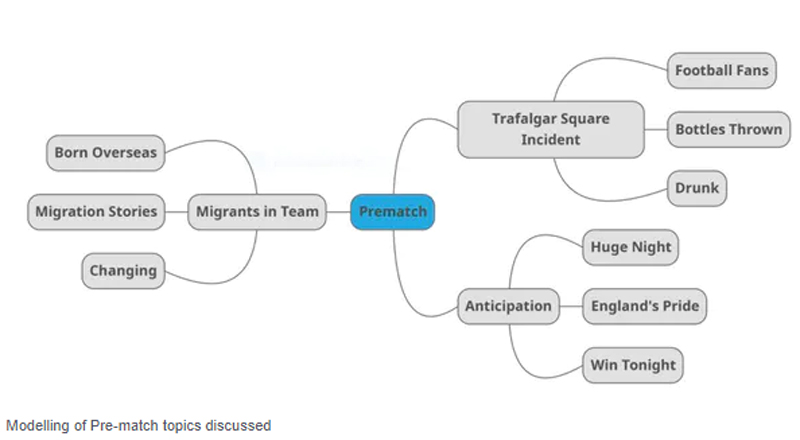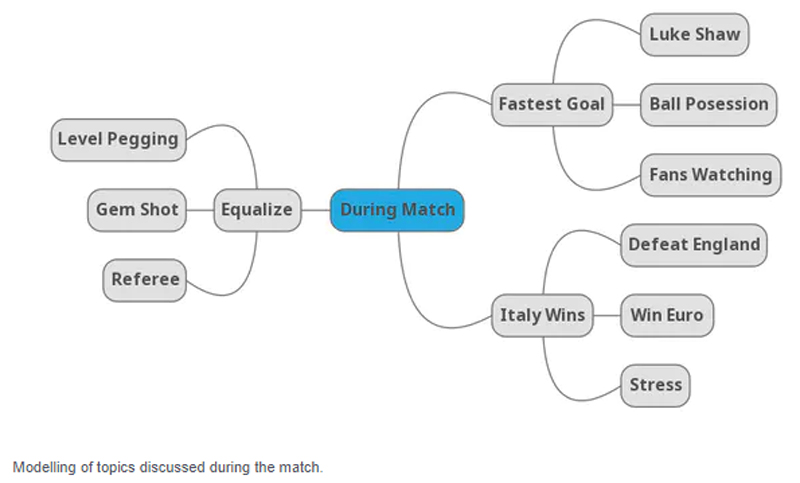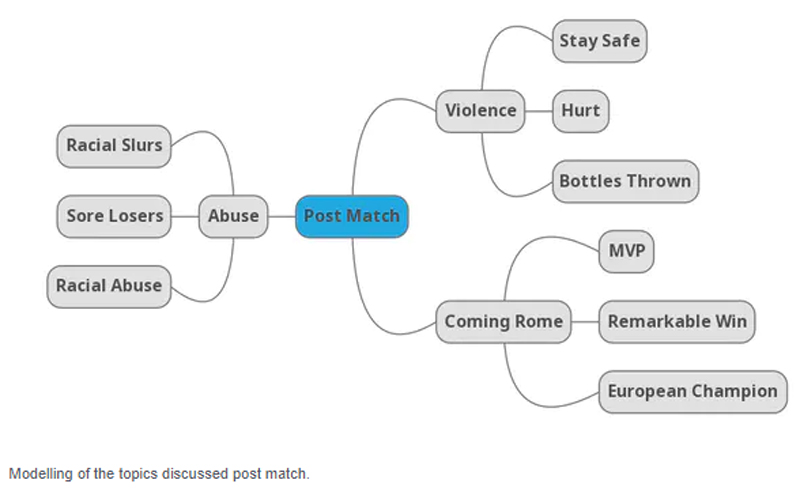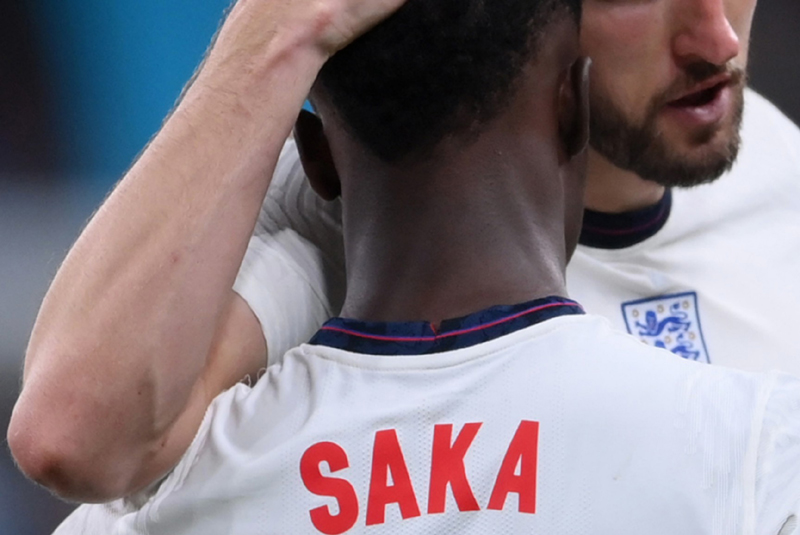As excitement built in England ahead of the Euro 2020 final against Italy, fans took to Twitter to express pride in their diverse and inspiring team. There was also a sense of nervous anticipation at the chance to win a major tournament for the first time in 55 years. Many used the hashtag #Euro2020final to join the conversation before and during the first half of the match.
Following a crushing defeat by penalty shootout, a dark but familiar picture emerged. Some Twitter users under #Euro2020final posted racist messages against England’s black players, Bukayo Saka, Marcus Rashford and Jadon Sancho.
Tweets using #Euro2020final became a sobering reminder of the deep schisms that run through English society. For black British citizens, the tweets reflected a disheartening message about their continued exclusion from mainstream British culture.
As social media researchers who have tracked events online by analysing keywords, topics and sentiments organised under hashtags, we were not surprised by what we saw on Twitter following England’s defeat. In anticipation of abuse and bullying post-match, we archived tweets just prior to kick-off and kept a close eye on Twitter after the result was announced. We were familiar with the power of English football to dominate Twitter conversations.
We used the publicly accessible tool TAGS which archives Twitter postings via a search application programming interface. While this source is not exhaustive, we were able to collect 32,765 tweets using the hashtag #Euro2020final in the hour leading up to kick-off, 100,282 during the match and 44,554 after the match until midnight.
We then applied topic modelling, an approach that uses machine learning to identify underlying themes in large bodies of text to explore the English language content of tweet text.
The following visualisations present the three most prominent topics during each time period and the three most prominent keywords associated with each of them.
Before: positivity and diversity

Before the match, there was a positive rather than negative framing of the English team’s international origins, with many sharing stories of immigration, diversity and a “changing” England. Also discussed were fans’ hopes for a long awaited victory and discussions about a fan incident at Trafalgar square involving police.
During: early goal excitement

During the match, the discussions were about Luke Shaw’s history-making early goal, Italy’s equaliser and the final results. Shaw was among the most popular topics discussed.
After: racial abuse

Post match, the theme of racial abuse emerged. While actual racist posts were tweeted by a small number of people, it should be noted that the structure of online discussions, where individual comments are shared rapidly among posters, amplified this content into an online firestorm prompting responses from senior government officials.
Another dark aspect of the post-match tweets was the discussions around the link between domestic violence and football.
Stopping the firestorm
Our analysis raises an important question about whether Twitter ought to take a more proactive role in monitoring and preventing the spread of racist abuse following events such as the Euro 2020 final. Twitter responded to the abuse on its platform by using a combination of machine learning based automation and human review to remove over 1,000 tweets and permanently suspended several accounts.
However, this action failed to effectively suppress the negative picture that emerged after the #Euro2020final. We suggest that Twitter could be taking action to stop online firestorms, even before they start.
Twitter trolls know that racist or hateful content about a high profile event will be widely condemned online. But condemnation of racist or hateful content only serves to further magnify the impact of these posts on such an event. Any positive message will be overshadowed by the discussions of hateful or racist posts.
What is surprising is that Twitter allows the process to continue. There is no ambiguity about these outcomes, only variability in the scale. In contrast to the limited exploration that we performed, Twitter has archives of online firestorms in a number of contexts and would be aware of the conditions, characteristics and outcomes of these occurrences.
Based on this knowledge, the rapid immediate cascades that result in the predictable cycle of hateful content and condemnation could be minimised using tools Twitter have already developed, such as prompting users to rethink their tweets that may include harmful language. These tools could be adapted to provide warnings that encourage users to think before they retweet, and slow the rate of reactions to hateful content. While not a comprehensive solution, they can be applied in high profile events such as the Euro 2020 final to stem the spread of abuse online.
Of course, doing this raises questions about rights to free speech. Twitter received backlash over its suppression of a New York Post story about Hunter Biden. But in some cases, especially where there is potential for violence or an immediate threat against people or groups, there may be reasonable justification for taking action.
Questions remain around when to intervene and the extent to which intervention may push hateful discussions to other platforms. Still, it may be well worth exploring – the discussions the day after the Euro 2020 final should have been about a history-making team, not about the abuse that a small number of trolls were able to turn into a firestorm.
This story first appeared in The Conversation.
-30-
Copyright©Madras Courier, All Rights Reserved. You may share using our article tools. Please don't cut articles from madrascourier.com and redistribute by email, post to the web, mobile phone or social media.Please send in your feed back and comments to [email protected]











